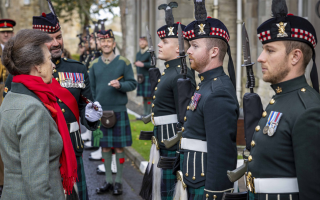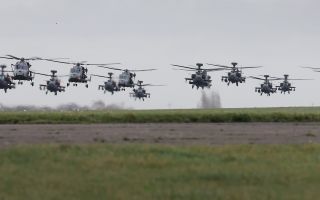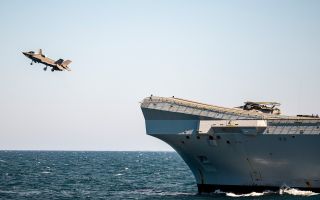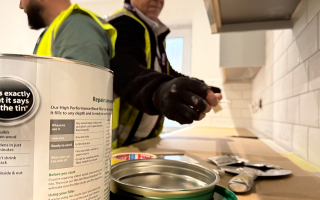Tri-Service
Reports: Plans In Turmoil After Libya's 'No Thanks' To UK Troops
Plans to send 1,000 British troops to Libya are reportedly in turmoil after the country's new UN-approved interim government said it does not want help from foreign militaries.
The UK government denied last month that plans were already in place to send troops to Libya to help in the fight against Daesh, the possibility of which had been reported since the end of last year, with some outlets speculating that the SAS could spearhead the operation.
The British government expected a request for help, however, after the Government of National Accord was formed in December, according to the Times, with Italy having been putting together a 6,000-strong non-combat force including British and French troops to train Libyan forces.
But a source from the government, which sits in Tripoli and is led by Fayez al-Sarraj, told the newspaper that ministers will likely reject offers of external security help because of fears that it could increase divisions in the country, and that they are committed to battling Daesh themselves.
The Foreign Secretary, meanwhile, is facing fresh calls from MPs to make a Commons statement on the possible deployment of British ground troops to the country.
The cross-party Commons Foreign Affairs Committee has angrily rejected Philip Hammond's latest "less-than-candid" assurances that no deployment to the strife-torn north African state is imminent.
The row follows a visit by MPs to Egypt and Tunisia last month during which they said they were told the UK was to contribute 1,000 troops to a 6,000-strong international force to be dispatched to support a new UN-backed government of national unity "in the near future".
In their latest exchange of correspondence, released by the committee, Mr Hammond said no decisions had been made about any future British deployment. He wrote:
"I have taken the precaution of checking with our embassies in Cairo and Tunis. They have confirmed that at no point did British diplomats brief you to this effect. Your assertions are wrong on a number of accounts."
That drew a furious response from the committee chairman, Conservative former minister Crispin Blunt, who said his letter was designed to be "wholly and deliberately misleading to the uninformed reader". He wrote:
"As you are no doubt aware given your careful choice of words, the briefing came from another British source working at the direction of the defence attaché and witnessed by British diplomats."
He added:
"The Foreign Affairs Committee remains deeply concerned by potential British military involvement in Libya. The welcome candour of briefings by all whom we met in Cairo and Tunis contrasts sharply with your less-than-candid reply to my request for further detail on a rapidly developing situation that may require further active British engagement."
He called on Mr Hammond to make a statement to the Commons "clarifying" the UK's current military involvement in Libya and its plans to deploy troops to the country.
A Foreign Office spokesman said there are no plans to deploy combat troops.
"As the Foreign Secretary has made clear, the UK continues to work with international partners on how to best support the new Libyan government. This includes discussions about a Libyan International Assistance Mission.
"The Foreign Secretary has also been consistently clear that while no decisions have yet been taken, there are no plans to deploy combat troops and that planning has been focused on training Libyan security forces to provide their own security."
The Ministry of Defence, meanwhile, released the following statement:
"The UK, along with international partners, is supporting the process to form a recognised Libyan government and we are developing plans to support this.
"No decisions have been made about the future deployment of any British military forces to Libya as part of an international coalition force."







